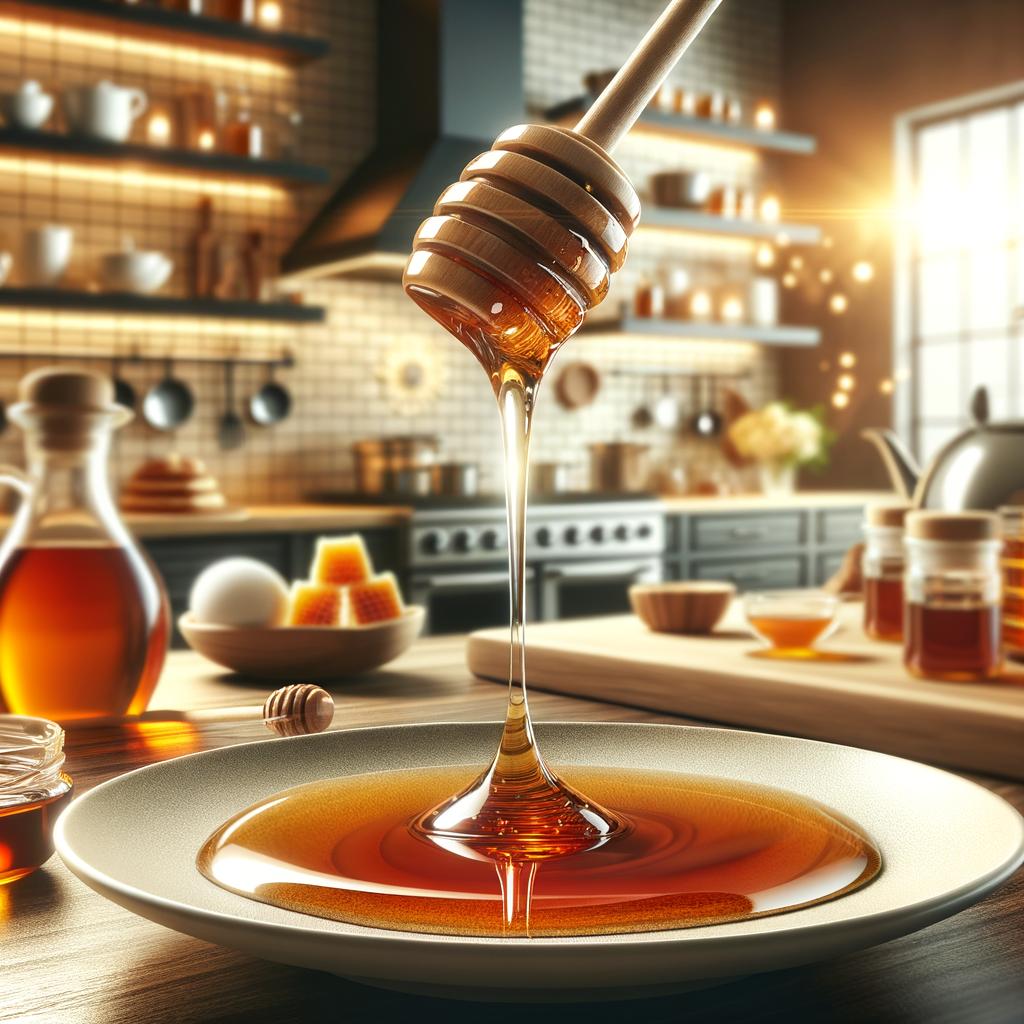Maple Syrup or Honey

Description Maple syrup, a golden elixir of sweetness, is a delightful ingredient that graces our kitchens with its versatile uses. It is a thick, viscous liquid that has a rich amber color, varying from light to dark depending on its grade. The texture is smooth, sticky, and silky, pouring like a slow, sweet river from the bottle. Its flavor profile is a complex ballet of sweetness, with notes of caramel, vanilla, and a slight hint of woodiness. This unique flavor, together with its natural purity, sets it apart from other sweeteners like honey or cane sugar.
Primary Uses Maple syrup is a favorite in the culinary world, adding a touch of sweetness and depth to a wide array of dishes. It is traditionally drizzled over pancakes, waffles, and French toast, but its uses extend far beyond the breakfast table. It can be used in marinades, salad dressings, and even in baking as a substitute for sugar. In the beverage world, it's often used to sweeten cocktails or hot beverages. Apart from its culinary uses, maple syrup has been used for medicinal purposes by Native American tribes, and it holds a significant place in Canadian culture as a symbol of their rich natural resources.
History The history of maple syrup is steeped in the traditions of the indigenous peoples of North America, who were the first to tap into the sweet sap of the maple tree. They shared this knowledge with the early European settlers, and it quickly became a staple in their diet. The process of making maple syrup has evolved over time, from boiling the sap in large, open pots to the modern use of evaporators. The tradition of "sugaring off," or the process of making syrup, is often celebrated with festivals and family gatherings, especially in the northeastern United States and Canada, where maple trees are abundant.
Nutritional Information Maple syrup is not just a sweet treat, but also a source of nutrition. It contains minerals like manganese, zinc, calcium, and potassium. It also has antioxidants that can help fight inflammation and boost the immune system. While it is a form of sugar and should be used in moderation, it has a lower glycemic index than refined sugar, which means it raises blood sugar levels more slowly. Compared to honey, another natural sweetener, maple syrup has a higher mineral content but less vitamin content. Both are healthier alternatives to refined sugar, but their unique flavors and nutritional profiles offer different advantages.

